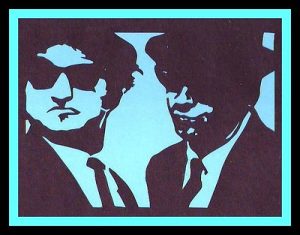
Past studies have shown that blue light, especially at night, can be particularly disruptive when it comes to bedtime, especially for teenagers.

Screens are likely disrupting your sleep.
But, it seems blue light exposure doesn’t just have an effect on your sleep, it also has negative effects on your overall health.
At night, light throws the body’s biological clock — the circadian rhythm — out of cycle. To add to this, sources show that it may contribute to the causation of cancer, diabetes, heart disease, and obesity.
What is Blue Light?
Blue wavelength – which are beneficial during daylight hours because they boost attention, reaction times, and mood – seem to be the most disruptive at night. And the proliferation of electronics with screens, as well as energy-efficient lighting, is increasing our exposure to blue wavelengths, especially after sundown. Essentially, it’s a range of the visible light spectrum, defined as having a wavelength between 400−495 nm. This short wavelength means that blue light is a type of high-energy visible light, defined as having a wavelength between 400 and 450 nm. Meaning that blue light is just below UV on the visible light spectrum.
What are scientists saying?
Harvard researchers and their colleagues conducted an experiment comparing the effects of 6.5 hours of exposure to blue light to exposure to green light of comparable brightness. The blue light suppressed melatonin (the hormone that makes you sleepy) for about twice as long as the green light and shifted circadian rhythms by twice as much (3 hours vs. 1.5 hours).
In another study of blue light, researchers at the University of Toronto compared the melatonin levels of people exposed to bright indoor light who were wearing blue-light-blocking goggles to people exposed to regular dim light without wearing goggles. The fact that the levels of the hormone were about the same in the two groups strengthens the hypothesis that blue light is a potent suppressor of melatonin.
Some sources claim that blue light exposure causes disease, and some other claims contradict this. We all know by now blue light affects sleep quality, and bad sleep most definitely has been proven to cause a number of problems. But, advertising agencies have fined companies regarding claims about direct exposure causing illness, but some reputable sources back them so it’s important to do your own research on the topic before coming to the hypothesis that blue light is going to make you drop dead.





